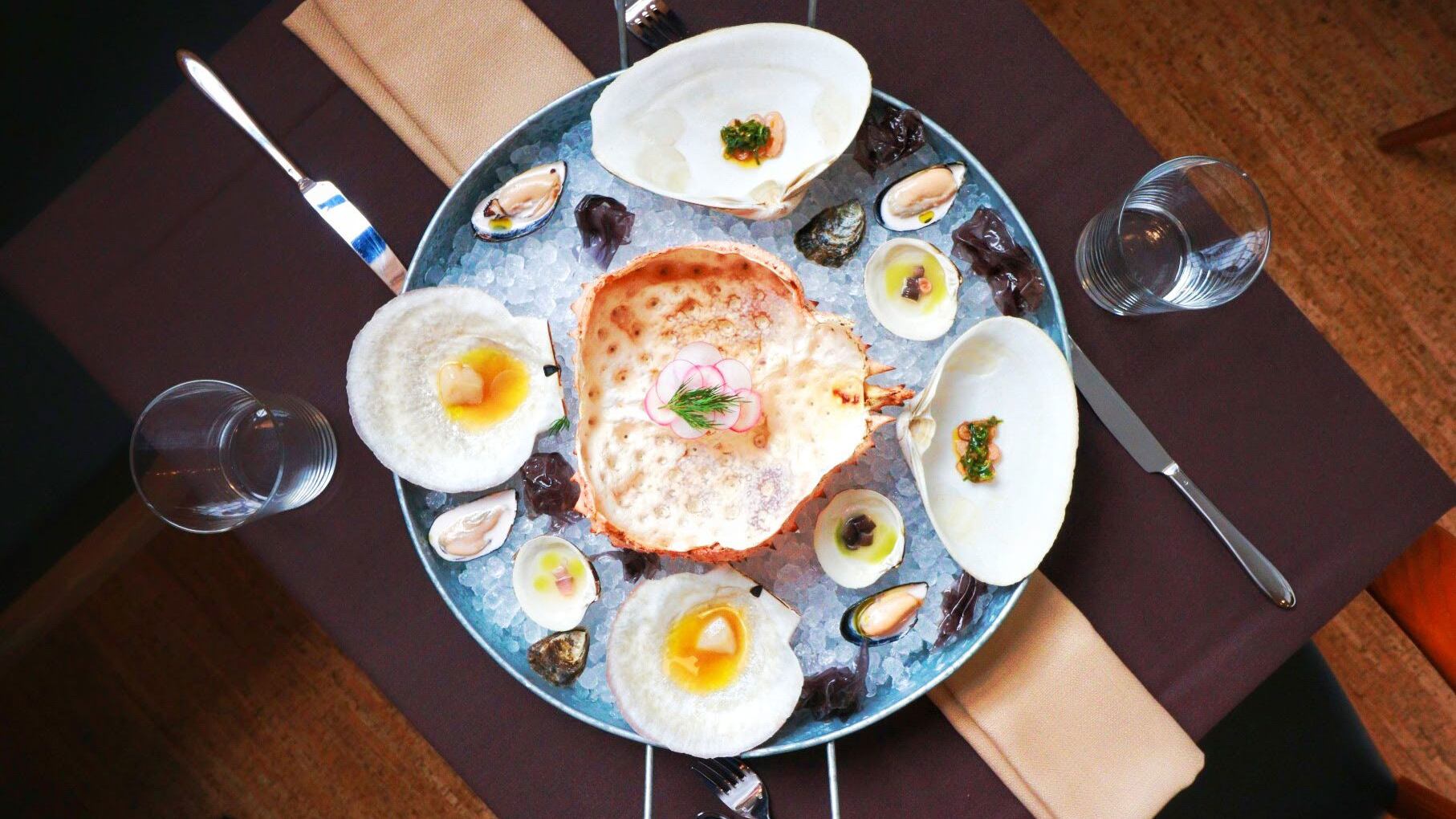Sustainability is such a loaded term.
As the food world, like everything else, has become increasingly politicized, socially conscious chefs and diners are driven to dishes they can prepare and eat with minimal guilt.
Some strivings toward sustainable dining make perfect sense. Nose-to-tail eating introduced all kinds of delicious animal parts that had often been ignored. But other efforts have enjoyed a narrower embrace. "Plant-based" dietary prescriptions may thrill some, but the vast majority still enjoy animal protein at the center of their meal—and restaurants need to stay in business.

That brings us to the avowedly sustainable Erizo, the first self-guided mission for 27-year-old chefs Jacob Harth and Nick Van Eck after turns cooking at St. Jack restaurant and Bar Casa Vale. (Clyde Common impresario Nate Tilden also plays a background role.) Located in the vibey building just off East Burnside once occupied by generational rock clubs Pine Street Theater and La Luna, Erizo resides in the tiny square space originally cut out to house the short-lived, upscale version of Biwa—it may seat a dozen and a half on a busy night. Other than replacing Biwa's awful elevated seating with a cushy, black-padded banquette and reasonably comfortable chairs, the boys have kept the space simple and uncluttered, with a wood plank wall and cork floor.
These earnest young chefs have made "by-catch," "invasive species" and multiple varieties of seaweed the center of their culinary universe—and it might be the most extraordinary seafood restaurant the city has seen in nearly a decade.
But on opening in January, the chefs' vision was still murky.
Erizo's seafood focus was marred by a closing course of "retired dairy cow," a label straight out of an unaired Portlandia skit. Somewhere in the mix was a sweet, gooey and barely palatable seaweed dish. These and the other courses on the $125 prix fixe tasting menu were accompanied by overlong explanations of every dish. That first visit turned into a slog that lasted nearly three hours.
But a little time can work magic. At a more recent Erizo meal, the cow had been mercifully re-retired, the pacing was perfect—right around two-and-a-half hours—and nearly every course was revelatory. The dissertations on the food, typically offered by Harth or Van Eck personally, remain a source of some ambivalence. As a companion observed, "the explanations are more complex than the dishes themselves." In fairness, these explanations are clearly borne of enthusiasm. One might even gain insights beyond the pristine provenance of every product on the plate. But sustainability-focused diners have no trouble asking questions—and the excellence of Erizo's food speaks for itself.

The highlight of an opening seafood course comprising three "snacks" was a sweet and briny tongue of Washington sea urchin—Erizo's namesake in Spanish—topped with a tiny ribbon of lard on a crunchy corn cracker. The flavors and textures were transcendent. A tiny trout roe tart and lightly smoked wolf eel toast ("by-catch from Dungeness crab pots") completed the plate.
Next up was a tranche of sashimi-like raw fish slices—yellowfin tuna, yellowtail, trout and mackerel—carefully dry-aged in a walk-in refrigerator for up to 10 days, allowing flavors to concentrate. It works. The extra flavor development was an enhancement, as were the dabs and drips of garnish, often fashioned from other parts of the same fish from which the sashimi came. Call it snout-to-tailfin.
Then came contrasting tastes of different seaweeds, one small bowl matched with sweet citrus fruit, the other with briny barnacles "pried from manmade structures only" to be legal. It was a brilliant intermezzo.
The meal's double crescendo began with six different shellfish on the half shell, served over a table-filling platter of ice. As with the sashimi, each clam enjoyed its own dedicated accompaniment—geoduck with chopped green garlic, peerless farmed rock scallop with a pumpkin-forward broth, blue mussels with hazelnut milk.
Soon after the shellfish were hoovered, a halibut neck arrived—a beautiful skin-on chunk of tender flesh that easily slid off a large, wedge-shaped bone. Given that Pacific halibut season opened only days ago, there could be no doubt about the sparkling freshness of the fish. Accompaniments included "volunteer" cabbage—essentially, an off-season sprout—drizzled with tart anchovy vinaigrette and a twist on parkerhouse rolls, leavened and subtly flavored with fermented rice. The rolls alone might be worth Erizo's ticket price.

Sweet courses wrap up the meal with a dab of intense Ecuadoran chocolate pudding accompanied by a marvelous sprinkle of coconutlike crisped barley. The disc of roasted kelp ice cream with coffee caramel that followed did not suck.
Erizo remains unsung amid the noise of better-promoted recent openings. For now, it is open only three nights a week. But if you consider yourself a seafood aficionado, or just want to do your part in helping save the earth, this is a wave you want to catch before it breaks beyond you.
EAT: Erizo, 215 SE 9th Ave., Suite 101, 503-206-8619, erizopdx.com. Dinner Thursday-Saturday. Reservations required.
